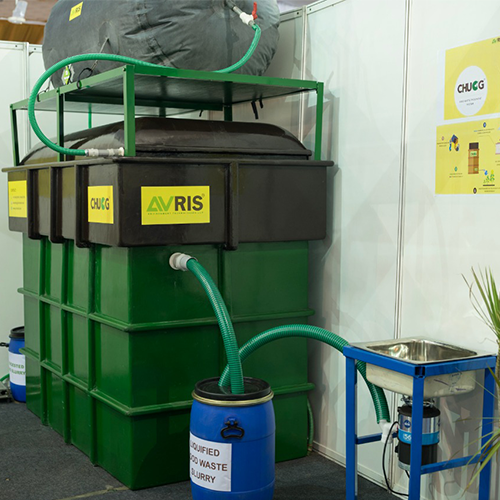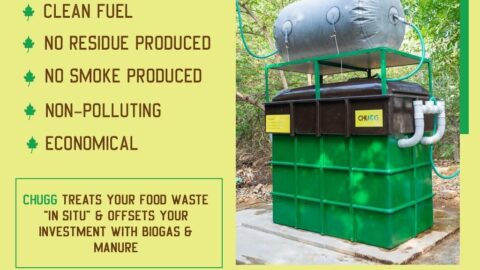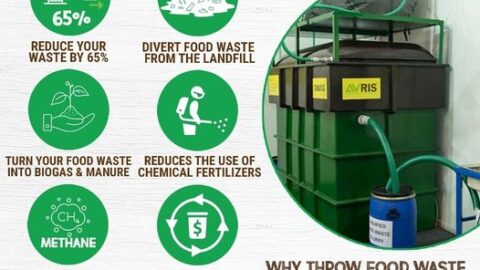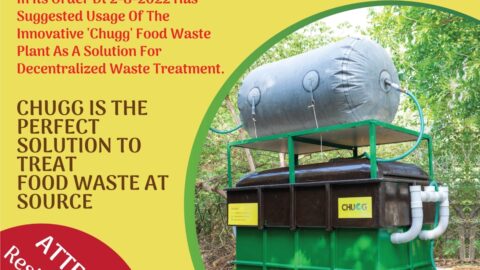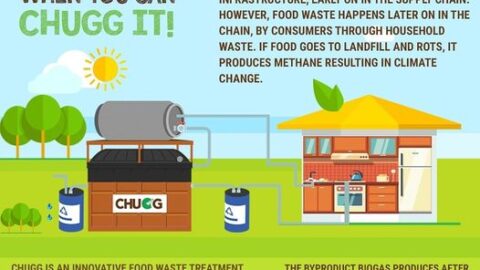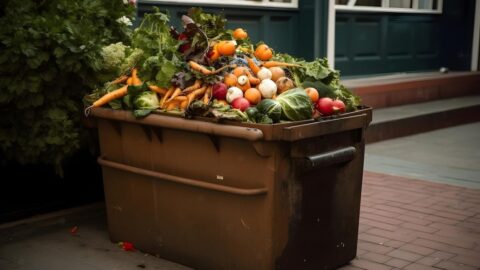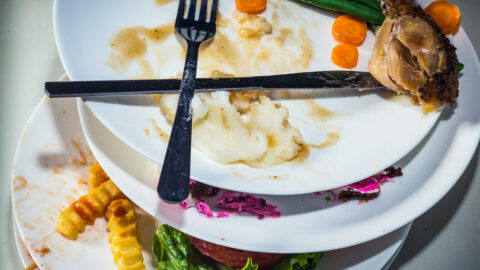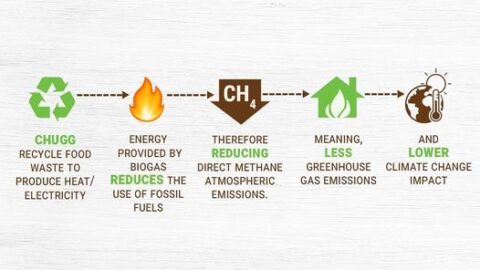The question of what is Biogas and how Biogas is better than composting has been a recent question due to the growing awareness of recycling food wastage. Biogas and composting is nothing but a process through which you turn organic waste into energy. Technically, it can be said as degradation of organic matter in a food waste treatment system to produce Methane for Biogas and Compost for fertilizer. Composting is good but with a food waste treatment system like CHUGG you can get more out of it.
Let’s see what is Biogas and Compost?
Biogas is a renewable energy that is environment – friendly. It is produced by the breakdown of organic matters such as organic food waste and animal wastes in the absence of oxygen. This process is referred to as anaerobic digestion, which takes place in an enclosed environment where there is no oxygen. It can occur both naturally and as a part of the Industrial food waste treatment process.
Compost is an organic material that enriches the plants to grow when added to the soil. It is a process of decomposing organic solid wastes such as farm waste, grass clippings, fresh leaves, etc. In the presence of air. Composting can be done at home, on farms, or in your backyard. If you don’t have enough space for a compost pile then use a special type of bin or make one yourself.
CHUGG- An innovative food waste treatment system in India produces two by-products one which can be used as fertilizer for your plants and the other is Biogas which can be used for cooking/electricity.
Biogas for cooking:
CHUGG does more than what compost piles can do. This innovative food waste treatment system breaks down organic waste in an enclosed chamber. Thereby capturing Methane gas which is released as a by-product of the process. This gas is used as fuel for cooking in the kitchen. This is a great way to avoid food waste going to landfills and creating renewable energy for your home.
Biogas is produced in the Chamber which is transported to the kitchen stovetop through a pipeline. The stove that operates on Biogas contains a valve that premixes the Biogas with oxygen, a burner, and is designed to hold a pot. Most of the conventional appliances running on conventional biogas fuels can be used with biogas.
Why biogas cooking is better than conventional cooking?
- Biogas produces lesser pollution compared to other conventional fuels, except electricity.
- The biogas plant will not attract pests.
- Instantly heats upon ignition hence, no pre-heating is required, unlike other fuels.
- Just like conventional stovetop Biogas burners can regulate the flow-rate from high heat to low heat.
- Biogas can be used to generate electricity as well.
- Cooking with a Biogas stovetop releases less greenhouse gas.
Biogas residue as fertilizer
Biogas residue also known as Bio-slurry discharged as a byproduct from CHUGG is a potent organic fertilizer that retains all the nutrients originally present in the feeding material. When food waste is fed into the Biogas plant in semi-liquid form the undigested slurry undergoes series of anaerobic digestion processes. The by-product of this process is called Biogas and the residue of this digestion is called Bio-slurry. Bio-slurry is proven to provide higher yields than regular manure.
Why Bio-slurry is better than composting?
- Bio-slurry is odorless. Hence does not attract flies or pests
- It reduces weed growth by 50%.
- It is an excellent soil conditioner as it contains humic acid. Therefore enhances the soil’s capacity to retain water.
- .
- It is a pro-biotic microbial-derived bio-activator that is a food source for earthworms.
- They are phytohormones a plant growth substance that enhances the growth of your plants.
- It is pathogen-free and serves as pesticides and organic fungicide thereby protecting your plants from killing organisms that cause plant disease.
Why CHUGG is better than Composting?
In the process of composting most of the work is done by microbes. But they don’t do it all properly. Maintaining a compost pile is time-consuming and requires a good knowledge of chemistry and biology. A compost heap should be turned frequently for the process to happen. This is not only time-consuming but also requires you to work on it manually and physically.
On the other hand, Food waste management is made easy with CHUGG- an innovative food waste treatment system in India that is user-friendly which can be installed in your backyard depending on the space available. All you have to do is feed CHUGG with all your organic waste and it will help you with the food waste management process.
Result
CHUGG provides instant fertilizer compared to Compost also provides a continuous supply of gas by breaking down organic waste matter. You can recycle any kitchen waste such as meat, dairy, oils, and citrus fruits. Whereas in composting you can recycle only vegetable waste. CHUGG can easily feed on animal waste and you don’t have to worry about odor or pests. Therefore by comparing the two methods we can conclude that CHUGG is the best at recycling.
Click here To know why a food waste treatment system is essential for you.

